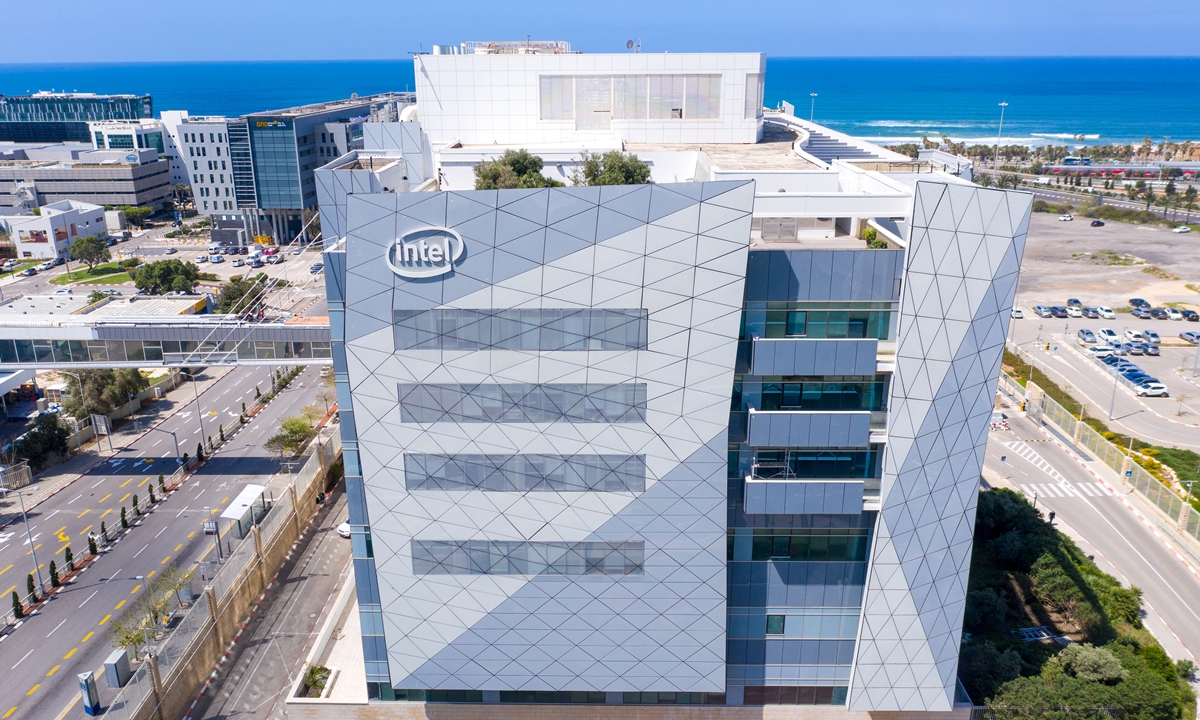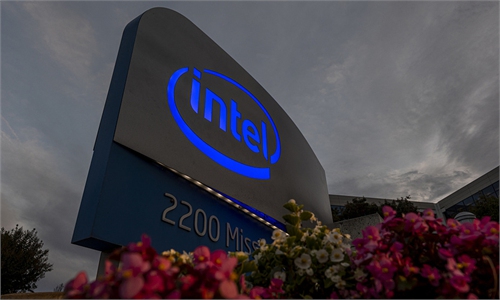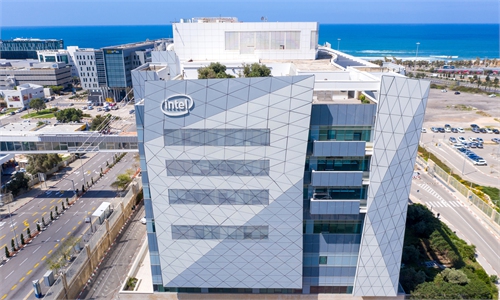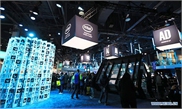
Intel Photo: VCG
US chip giant Intel on Thursday apologized to its Chinese consumers, partners and the public for trouble caused by its move to boycott products from Northwest China's Xinjiang Uygur Autonomous Region, but some Chinese netizens and experts said that the apology was not sincere and more commercial ramifications could follow.In a statement issued in Chinese, Intel said that "we deeply apologize for the trouble caused to our respected Chinese customers, partners and the public." It noted that although its original intention was to ensure compliance with US laws, its letter on the Xinjiang issue has caused "many questions and concerns among our cherished Chinese partners, and we deeply regret it."
The statement came after the company's recent letter requiring its suppliers to not source goods or services or use labor from Xinjiang sparked widespread anger among the Chinese public and its Chinese partners, as it cited widely debunked claims of "forced labor" in Xinjiang pushed by US politicians.
On Wednesday, Chinese pop singer Wang Junkai terminated all cooperation with Intel, saying that after multiple rounds of "serious communication," the US firm still failed to publicly express its stance and attitude. "National interest is above all else," the young popular singer said in a statement.
Intel's statement on Thursday became a trending topic on Chinese social media platform Weibo, where many netizens are not buying Intel's "weak" statement. "It feels like it had said a lot, but at the same time nothing," wrote one Weibo user with the handle "metrolife."
Meanwhile, Intel China disabled the comment section on its Weibo account on Thursday.
Chinese industry experts also suggested that Intel's statement will not be sufficient to change its image in the Chinese market.
"Apparently, they underestimated our determination to deal with national territorial issues and crossed on our red line by making irresponsible remarks over the Xinjiang issue under the US government pressure," Ma Jihua, veteran industry expert, told the Global Times on Thursday.
Ma said that Intel did not have to this high-profile move to please US politicians in the first place and its apology under pressure could not be sincere, "because that would be slapping itself in the face."
In July, some US politicians used the Xinjiang issue to force several American companies to state their positions on the subject, but only Intel executives claimed to believe in the conclusions of the US government.
Intel believes that its products have a certain market advantage in China and that would shell it from being subject to a boycott, "but the actual situation is that, as a result of this incident, China will definitely accelerate the substitution of Intel products as a result," Ma noted.
China is already accelerating development of its own chips, servers and other related products amid a US-waged tech war. Also, Chinese manufacturers and users are worried about whether Intel's provocation will raise questions about network security, including whether the market's acceptance of Intel's products will be affected, Ma said.
Global Times



